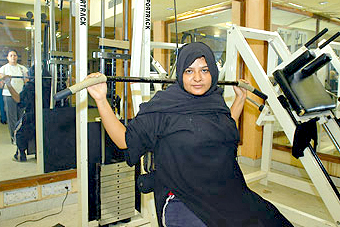17-year-old Pratyusha Jha, wakes up scrambling for newspapers these days to look for any news about her pending board exams and is anxious about what the future has in store for her.
Similar concerns are shared by Bipin Kumar, a class 12 student, who says the announcement of board exams from July 1 to 15 brought limited clarity as the larger questions remain unanswered.
The COVID-19 lockdown, came with a different set of concerns for class 12 students, whose board exams were postponed midway following the outbreak of coronavirus, putting on hold their future plans as well.
"Everyday I have been looking for news about the exams and about entrance exam dates. I feel unfortunate that this happened during the year I was supposed to take the big college leap. I don't want my future decisions to be shaped by this very year as what I opt to study now will remain with me lifelong," Pratyusha told PTI.
Ending some uncertainty for students, HRD Minister Ramesh Pokhriyal 'Nishank' on Friday announced that the pending class 10 and 12 board exams will be held from July 1 to 15. While class 12 exams will be conducted across the country, the class 10 exams are only pending in North East Delhi where they were affected due to the law and order situation.
"The anxiety doesn't end here, there is no date sheet yet. What will be the modalities of exams, how will we reach centres, what protocols have to be followed, there is no clarity on that. My friends and I keep calling our school teachers and also the CBSE helpline to seek some clarity," Bipin Kumar said.
Vaibhav Sharma, a class 12 student in Gurgaon said, "There is no clarity yet. I wanted to apply for DU, but now that the exams are taking place in July when will the results be declared, when will cut offs be announced. If I don't get a good college here, will I be able to travel to different cities for admission, nothing is known yet."
Similarly, for the students in northeast Delhi, the wait for the exams has become a "test of patience" as they were postponed first in the area due to law and order situation, and later due to the coronavirus outbreak, resulting in a four-month-long wait for the exams.
"It has become an endless wait and now I don't feel like studying too. Right from childhood, we are taught that board exams are too crucial and have to be focussed at least two years in advance. But now, it is a different picture altogether," Rani Kumari, a resident of Chandbagh said.
Universities and schools across the country have been closed and exams postponed since March 16 when the Centre announced a countrywide classroom shutdown as one of the measures to contain the COVID-19 outbreak.
Later, a nationwide lockdown was announced on March 24, which has now been extended till May 17.
The board was not able to conduct class 10 and 12 exams on eight examination days due to the coronavirus outbreak. Further, due to the law and order situation in North East Delhi, the board was not able to conduct exams on four examination days, while a very small number of students from and around this district were not able to appear in exams on six days.
The board had last month announced that it will only conduct pending exams in 29 subjects which are crucial for promotion and admission to higher educational institutions. The modalities of assessment for the subjects for which exams are not being conducted will be announced soon by the board.
The schedule has been decided in order to ensure that the board exams are completed before competitive examinations such as engineering entrance JEE-Mains, which is scheduled from July 18-23, and medical entrance exam NEET, which is scheduled on July 26.
The University Grants Commission (UGC) has issued guidelines to universities that new academic session for freshers will begin from September while for the existing students from August.
 India is the 3rd most obese nation in the world. The country houses at least 41 million overweight people.
India is the 3rd most obese nation in the world. The country houses at least 41 million overweight people.




Comments
Add new comment